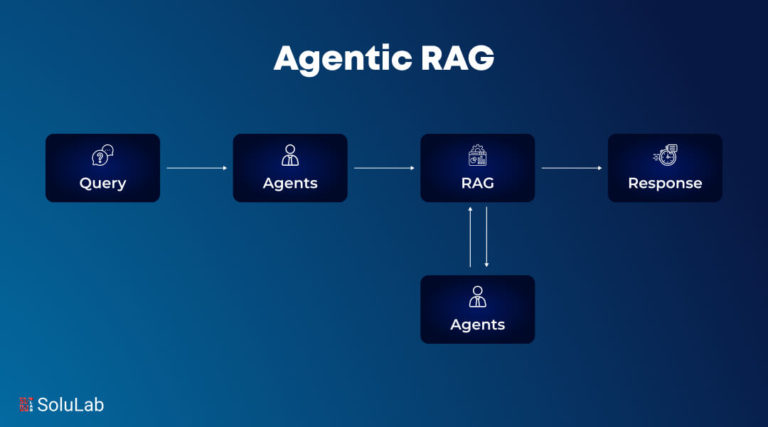
Blockchain technology has undoubtedly been a transformative force in the world of finance, commerce, and beyond. At the heart of this technological revolution lies the concept of “smart contracts.” These self-executing contracts, encoded within the blockchain, have rapidly gained prominence due to their potential to automate and streamline a wide array of processes. In this blog post, we delve into the world of smart contracts, exploring their definition, significance in the realm of blockchain technology, and the increasingly pivotal role of economic and game theory audits in ensuring their reliability and security.
A smart contract, in its simplest form, can be thought of as a computer program that automatically executes the terms of an agreement when predefined conditions are met. Unlike traditional contracts, which often rely on intermediaries and can be prone to human error or manipulation, smart contracts run on decentralized blockchain networks. They are written in code, containing a set of rules and conditions that, once triggered, initiate and enforce the contract’s terms without the need for a middleman.
Read Also: Ultimate Checklist For Smart Contract Audit
What is the Role of Economic and Game Theory Audits?
While smart contracts offer immense potential, they are not immune to vulnerabilities and flaws. This is where economic and game theory audits come into play. Economic audits focus on evaluating the economic incentives and fairness within smart contracts. They ensure that the rules and incentives embedded in the code align with the intended goals of the contract and its participants.
Game theory audits, on the other hand, analyze smart contracts from a strategic perspective. They examine the potential interactions and behaviors of participants within the contract, looking for equilibrium points and assessing the contract’s stability under various scenarios.
In an era where smart contracts are used in applications ranging from decentralized finance (DeFi) to supply chain management, economic and game theory audits serve as crucial tools for identifying and mitigating risks. They help developers and stakeholders understand the potential outcomes and challenges associated with a smart contract, ultimately enhancing its reliability and security.
In the sections that follow, we will delve deeper into the development and security aspects of smart contracts, explore the role of game theory in decentralized systems, and examine the importance of economic and game theory audits in greater detail. Through this exploration, we aim to shed light on the multifaceted world of smart contracts and the evolving strategies to ensure their integrity and functionality in the blockchain ecosystem.
What are the Essential Steps in the Smart Contract Development Process?
Smart contracts, a pivotal component of blockchain technology, have revolutionized the way transactions are executed and automated. These self-executing contracts rely on predefined rules and conditions, eliminating the need for intermediaries and enhancing transparency. However, their implementation is not without challenges, making it crucial to emphasize the development process, security, and the importance of audits.
A. Smart Contract Development Process

Smart contract development is a meticulous and structured process that involves several key steps:
-
Defining Objectives
Start by clearly defining the objectives and functions the smart contract needs to perform. This includes specifying the rules, conditions, and participants involved.
-
Choosing the Right Blockchain
Depending on your use case, select the appropriate blockchain platforms (e.g., Ethereum, Binance Smart Chain) for deploying your smart contract.
-
Writing Code
Skilled developers write the code that defines the smart contract’s logic. Solidity, a popular programming language, is commonly used for Ethereum-based contracts.
-
Testing and Debugging
Rigorous testing is essential to identify and rectify any vulnerabilities or bugs in the code. This includes simulating various scenarios to ensure the contract behaves as expected.
-
Deployment
Once thoroughly tested, the smart contract is deployed onto the chosen blockchain. Deployment typically incurs a gas fee, which varies depending on the blockchain.
-
Execution and Interaction
Users interact with the smart contract through transactions, triggering its predefined functions. These transactions are immutable and recorded on the blockchain.
B. Smart Contract Security Risks
Despite the benefits of smart contracts, they are susceptible to various security risks:
-
Code Vulnerabilities
Malicious actors can take advantage of errors or weaknesses in the programming. Common issues include reentrancy attacks, integer overflow/underflow, and unchecked external calls.
-
Oracles
Smart contracts frequently depend on other data sources known as oracles. Manipulating or compromising these oracles can lead to incorrect contract execution.
Read Our Blog: Top 10 Smart Contract Development Companies in 2023
-
Privacy Concerns
While transactions are transparent on the blockchain, the information contained within smart contracts can sometimes expose sensitive data.
-
Upgradeability
The ability to upgrade smart contracts can be a double-edged sword. While it allows for improvements, it also opens the door to potential misuse or unauthorized changes.
C. The Need for Smart Contract Audits
To mitigate these security risks, the need for smart contract audits becomes evident. Audits are a vital part of the smart contract development lifecycle, ensuring that the code is secure and functions as intended.
Smart Contract Security Audit
A smart contract security audit is a comprehensive examination of the contract’s code and functionality. This audit involves:
- Identifying vulnerabilities and weaknesses in the code.
- Ensure compliance with industry best practices and standards.
- Verifying that the contract’s logic aligns with the intended functionality.
- Analyzing potential attack vectors and recommending countermeasures.
Smart Contract Audit Services
Several specialized firms and individuals offer smart contract audit services. These auditors bring expertise in blockchain technology, smart contract development, and security best practices. Engaging audit services helps ensure that your smart contract is robust and resistant to exploitation.
D. Decentralized Applications and Their Reliance on Smart Contracts
Decentralized applications (dApps) heavily rely on smart contracts to execute their operations. These applications span various industries, from finance and supply chain to healthcare and gaming. The security and reliability of smart contracts are critical for the success and trustworthiness of dApps.
The profound impact of decentralized applications (dApps) on various industries underscores the critical role that smart contracts play in shaping the future of blockchain technology. As we’ve explored the significance of dApps and their reliance on smart contracts, it becomes evident that these self-executing contracts are the backbone of decentralized ecosystems.
SoluLab, with its expertise in blockchain technology and smart contract development services, stands at the forefront of this transformative landscape. SoluLab’s commitment to innovation, security, and best practices ensures that the smart contracts underpinning dApps are not only reliable but also resilient to the ever-evolving security challenges.
Read Also: How to Do Smart Contract Applications Actually Work
Can Game Theory Enhance Decentralized Systems through Economic Analysis in Blockchain?
Game theory, a branch of mathematics and economics, has found a compelling application in the realm of blockchain technology. It provides a systematic framework for analyzing and understanding strategic interactions among participants in decentralized systems. In this article, we explore the pivotal role of game theory in blockchain, particularly its relevance in the context of smart contracts.
A. Game Theory’s Role in Decentralized Systems
Decentralized systems, such as blockchain networks, are characterized by multiple actors making independent decisions. Game theory equips us with the tools to model and predict the outcomes of these decisions by considering the incentives and strategies of each participant. This is essential for ensuring the security, fairness, and efficiency of blockchain ecosystem protocols.
B. Game-Theoretic Models in Smart Contracts
-
Supply Chain Game
One of the prominent applications of game theory in blockchain is in supply chain management. Supply chains involve numerous stakeholders, each with distinct interests. Game theory allows us to model how these actors interact within the blockchain ecosystem to optimize their interests. For instance, suppliers, manufacturers, and distributors can use game theory to negotiate terms, ensure fair compensation, and reduce fraud through smart contracts.
-
Game-Theoretic Approaches to Smart Contracts
Smart contracts, self-executing contracts with the terms directly written into code, are integral to blockchain technology. Game theory aids in the design and evaluation of these contracts. By analyzing the potential strategies and payoffs of participants, game-theoretic models assist in creating robust smart contracts that align with the desired outcomes.
C. Theoretical Frameworks for Analyzing Smart Contracts
To comprehensively assess the security and reliability of smart contracts in blockchain systems, various theoretical frameworks and methodologies come into play. These frameworks facilitate economic and game theory audits, ensuring the integrity of decentralized applications. Some key aspects and related keywords include:
-
Smart Contract Development
Game theory can guide developers in constructing smart contracts that account for different participant strategies, ensuring that the contract behaves as expected in real-world scenarios.
-
Specialized Audit Services
There is a growing demand for specialized audit services that employ game theory to evaluate smart contracts. These services help blockchain projects maintain the highest standards of security and reliability.
Read Our Blog Post: How to Make an NFT Game?
What are the Economic and Game Theory Audits in Smart Contracts?
Smart contracts have revolutionized the way transactions and agreements are executed in blockchain technology. They automate processes, eliminate intermediaries, and enhance transparency. However, with the growing complexity of decentralized applications and their reliance on smart contracts, it has become essential to ensure their reliability, security, and fairness. Economic and game theory audits have emerged as powerful tools in achieving these objectives. In this article, we will delve into the significance of economic and game theory audits in the context of smart contracts, exploring how they evaluate economic incentives, ensure fairness, assess strategic interactions, and evaluate Nash equilibria.
A. Economic Audits in Smart Contracts
Economic audits in the context of smart contracts play a critical role in assessing and ensuring the financial aspects of these self-executing agreements. These audits involve a meticulous examination of the economic incentives, fairness, and equity within smart contracts.
-
Evaluating Economic Incentives
Smart contracts often involve various parties with differing economic interests. Economic audits help assess these incentives and ensure that they align with the desired outcomes of the contract. By scrutinizing the economic parameters embedded within smart contracts, auditors can identify potential misalignments or vulnerabilities.
Economic audits may involve analyzing factors such as token distribution, reward structures, and penalties. For instance, in decentralized finance (DeFi) applications, the economic audit would focus on yield farming mechanisms, liquidity provision incentives, and lending and borrowing protocols. Ensuring that these incentives are designed to encourage desired behaviors and discourage malicious actions is crucial for the contract’s long-term viability.
-
Ensuring Fairness and Equity
Fairness and equity are fundamental principles in smart contract development. Economic audits play a vital role in assessing whether the smart contract’s economic design treats all participants fairly and equitably. This involves evaluating the distribution of rewards and penalties to prevent any form of exploitation or discrimination.
Economic audits also examine potential vulnerabilities that could lead to unfair outcomes. For example, in decentralized applications that involve voting or governance, economic audits scrutinize the voting power distribution and mechanisms to prevent the concentration of power.
Read Our Blog: Making Smart Contracts Smarter
B. Game Theory Audits in Smart Contracts
Game theory, a field that explores strategic decision-making in competitive and cooperative scenarios, has found a significant application in the realm of smart contracts. In this context, game theory audits play a pivotal role in ensuring the security, fairness, and stability of these automated agreements.
-
Assessing Strategic Interactions
Game theory audits in smart contracts focus on modeling and analyzing strategic interactions among participants. Game theory provides a framework for understanding how rational actors make decisions in competitive or cooperative environments. In the context of smart contracts, auditors assess how participants may strategically behave to maximize their utility.
For example, in a decentralized exchange (DEX), game theory audits would consider how traders might strategically execute trades to gain an advantage. Auditors would assess factors like order book dynamics, slippage, and liquidity to ensure that the DEX is resistant to manipulation and operates fairly.
-
Evaluating Nash Equilibria
Nash equilibria represent stable points in a strategic interaction where no participant can improve their outcome by unilaterally changing their strategy. Game theory audits aim to identify and evaluate Nash equilibria in smart contracts. This helps ensure that the contract’s design leads to stable and predictable outcomes.
In applications like automated market makers (AMMs) in DeFi, game theory audits would examine how liquidity providers and traders interact. Auditors would analyze the potential for arbitrage opportunities and front-running and assess whether the AMM’s parameters are set to encourage stable equilibria.
Read Also: Building Trust in a Digital World: The Power of Blockchain Development
C. The Intersection of Economic and Game Theory Audits
Economic and game theory audits often intersect, as they both contribute to the overall security and reliability of smart contracts. Economic audits ensure that economic incentives align with the contract’s objectives, while game theory audits assess how participants may strategically engage with the contract.
This intersection becomes particularly valuable in complex applications such as supply chain games. These applications involve economic considerations like fair distribution of rewards and strategic considerations like optimizing supply chain decisions. Auditors must analyze both economic and game-theoretic aspects to ensure the contract’s integrity.
Game theory stands as a pivotal element in fortifying the functionality and security of blockchain technology, particularly in the context of SoluLab’s solutions and services. By adeptly applying game-theoretic models and well-established theoretical frameworks, SoluLab empowers the development of intelligent, resilient smart contracts. This approach ensures that SoluLab’s blockchain systems remain steadfast in the presence of strategic interactions among participants, delivering unparalleled security and reliability.
What is the Future of Economic and Game Theory Audits?
As the blockchain ecosystem continues to evolve, the importance of economic and game theory audits in smart contracts becomes increasingly evident. These audits play a pivotal role in ensuring the security, fairness, and efficiency of decentralized applications. In this discussion, we explore the future of economic and game theory audits, focusing on emerging trends in smart contract development, ongoing improvements in audit services, and their potential impact on decentralized systems.
Emerging Trends in Smart Contract Development

Smart contract development, an integral component of blockchain development, continues to evolve rapidly. As the blockchain landscape matures, emerging trends in smart contract development are reshaping how decentralized applications are built, deployed, and utilized.
-
Interoperability
Smart contract development is no longer limited to a single blockchain platform. Emerging trends emphasize interoperability, allowing smart contracts to operate seamlessly across multiple blockchains. This requires audits to ensure that economic and game theoretic models remain consistent and secure in cross-chain environments.
-
Scalability Solutions
With the rise of decentralized applications (dApps) and DeFi platforms, there’s an increasing demand for scalable smart contracts. Developers are exploring layer 2 solutions and sharding techniques, which introduce new complexities in auditing. Future audits will need to adapt to assess the game-theoretic implications of these scaling solutions.
-
Privacy-Preserving Contracts
Privacy is a growing concern in blockchain. Smart contracts that handle sensitive data or require privacy-preserving mechanisms will require audits that account for these unique requirements while preserving security and fairness.
Ongoing Improvements in Audit Services

The world of blockchain and smart contract technology is ever-evolving, and with it, the need for robust audit services continues to grow. In this section, we’ll explore the ongoing improvements in audit services, highlighting the dynamic nature of the field and the advancements that contribute to the security and reliability of decentralized systems.
-
Automated Auditing Tools
As smart contract development accelerates, automated auditing tools are becoming more sophisticated. These tools can help identify vulnerabilities in economic and game theoretic models more efficiently, reducing the likelihood of human error and improving the overall audit process.
Read Blog: 15 Blockchain Companies Shaping the Real Estate Industry
-
Formal Verification
Formal verification techniques are gaining traction. These methods use mathematical proofs to rigorously verify the correctness of smart contracts. The future of audits will likely include a combination of formal verification and traditional auditing approaches to ensure the highest level of security.
-
Real-Time Monitoring
Continuous monitoring of smart contracts is becoming the norm. Auditors are developing real-time monitoring solutions that can detect and respond to anomalies or potential threats promptly. This proactive approach enhances the overall security of decentralized systems.
Potential Impact on Decentralized Systems

The potential impact on decentralized systems is a topic of great significance in the ever-evolving landscape of blockchain technology and smart contracts. As these systems continue to grow and adapt, it’s essential to explore the potential consequences, benefits, and challenges that may arise.
-
Enhanced Security
Economic and game theory audits will continue to strengthen the security of smart contracts. This, in turn, will boost confidence in decentralized applications and blockchain technology as a whole, attracting more users and investments.
-
Fairness and Trust
Audits ensure that decentralized systems operate fairly and transparently. Users can trust that the rules encoded in smart contracts will be upheld, reducing the risk of disputes and fraud.
-
Mainstream Adoption
As economic and game theory audits become more refined, they will facilitate the integration of blockchain technology into various industries beyond finance, such as supply chain management, healthcare, and government. This broader adoption will drive innovation and economic growth.
Conclusion
In conclusion, the fusion of Economic and Game Theory Audits with Smart Contracts represents an indispensable facet of the blockchain and decentralized applications ecosystem, particularly for companies like SoluLab that offer Smart Contract development services. As the realm of decentralized systems and Smart Contracts continues to expand, the significance of Smart Contract Security Audits cannot be overstated.
Blockchain technology, with its promise of trust, transparency, and immutability, has revolutionized various industries, from finance to supply chain management. Smart Contracts are the backbone of these innovations, automating processes and ensuring the execution of agreements without intermediaries. However, they are not without vulnerabilities, and the Economic and Game Theory Audits provide a crucial layer of security.
Furthermore, SoluLab’s dedication to Smart Contract audit services ensures that businesses can harness the full potential of this transformative technology while maintaining the highest level of security. With the ever-evolving landscape of blockchain and decentralized applications, staying ahead in terms of Smart Contract security is paramount. Connect with SoluLab today to safeguard your blockchain endeavors.”
FAQs
1. What is a Smart Contract Security Audit, and why is it important for decentralized applications?
A Smart Contract Security Audit is a thorough review of the code and logic within a smart contract to identify vulnerabilities and potential security risks. It is crucial for decentralized applications (DApps) as it helps ensure the integrity and trustworthiness of these applications, making them less susceptible to exploitation and fraud.
2. How does SoluLab contribute to Smart Contract Development and Audits?
SoluLab offers comprehensive Smart Contract Development services, including auditing. We help businesses create and review smart contracts to ensure they are secure, reliable, and aligned with their objectives.
3. What is the significance of Economic and Game Theory Audits in Smart Contracts?
Economic and Game Theory Audits examine the incentives and behaviors of participants within a blockchain ecosystem. These audits help ensure that the smart contract’s game-theoretic model aligns with the desired outcomes and that participants are incentivized to act in a way that benefits the ecosystem as a whole.
4. Can you explain the role of Game Theory in Smart Contract Development?
Game theory is used to model and analyze strategic interactions between participants in a decentralized system. It helps in designing smart contracts that incentivize desirable behaviors and discourage malicious actions, ultimately improving the stability and reliability of the ecosystem.
5. Why is Blockchain Technology closely linked to Economic and Game Theory Audits?
Blockchain technology relies on decentralized systems and smart contracts, making it essential to have economic and game theory audits to ensure that these systems function as intended, with the right incentives for all participants.
6. Are there any real-world examples of Game Theory Audits in Smart Contracts?
One example is the “Supply Chain Game,” where smart contracts are used to optimize supply chain processes. Game theory audits help ensure that the incentives for suppliers, manufacturers, and distributors align, resulting in efficient and cost-effective supply chains






